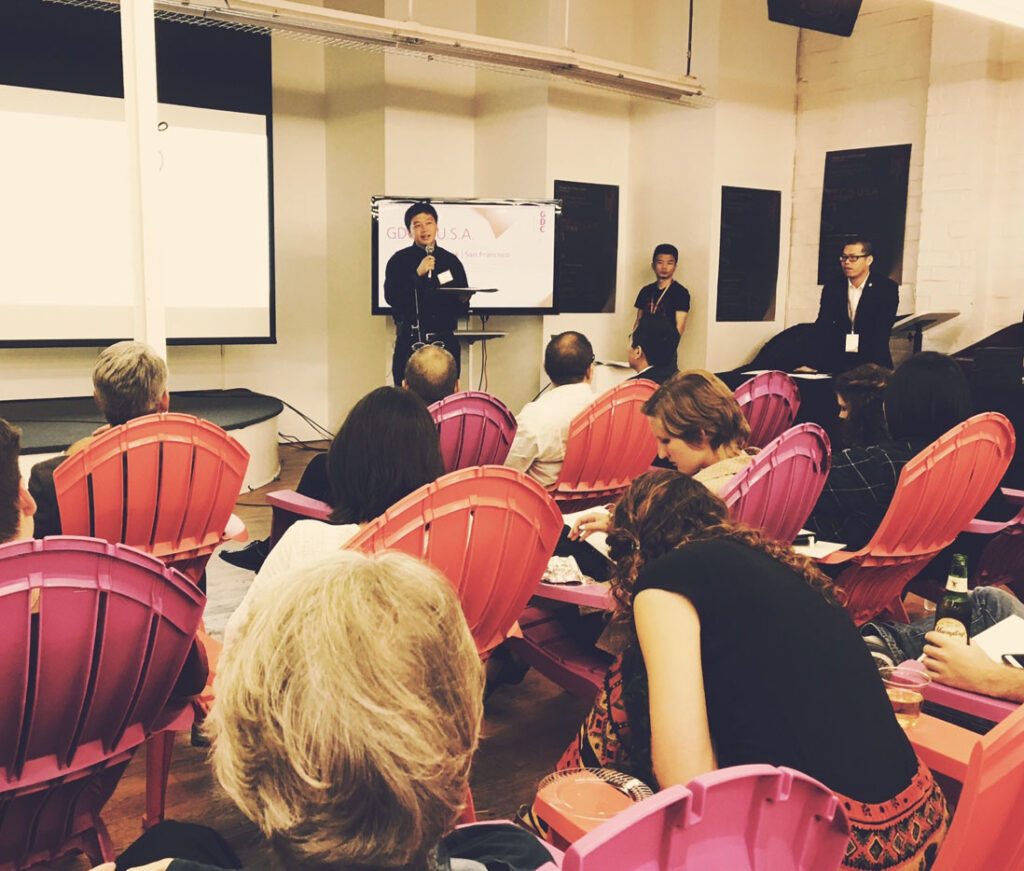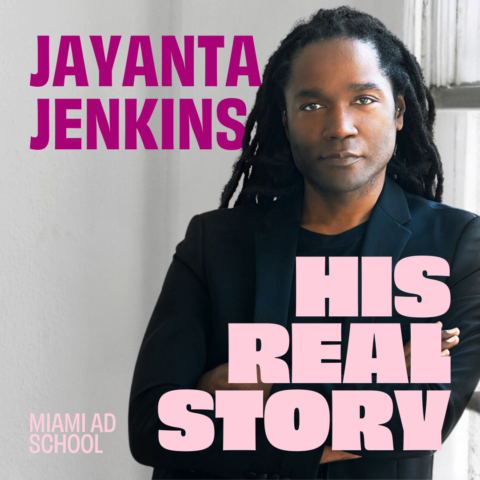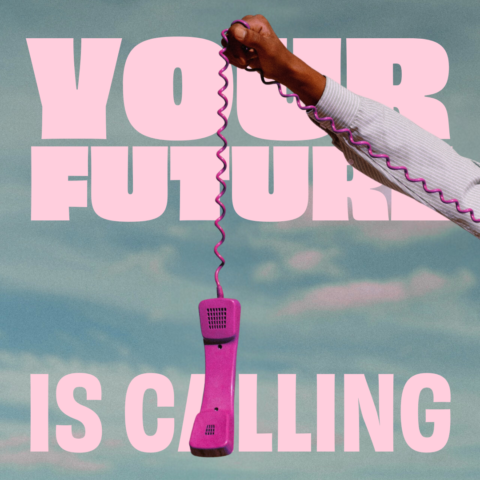
Becoming a REAL Strategist: An Interview with Nick Smatt
A few short years ago, Nick Smatt took a risk: he joined our Strategic Planning Bootcamp
This was, naturally, before Nick became one of the most exciting strategists around—before he'd worked intimately with brands like IBM and FedEx.
At the time, he was an account man in New York...and he had yet to find the thing that brought out his passion. All he had was a dream: a vague inkling of what it might be like to build a life in strategy.
It's starting to look like that big leap paid off. These days, Nick is a leading brand strategist: helping brands find their voice through a deep understanding of their category (and the broader cultural moment). And as you'll see, he's loving every moment.
Read on for our full conversation with Nick Smatt.
What does a strategic planner do?
The role of a strategist is to help solve business problems with the power of creativity.
On any given day, they can be writing a brief, briefing a team, conducting or moderating qualitative or quantitative research...but the crux of strategy is to understand culture. Understanding what's happening in the category of the brand that you're working on. Empathizing and understanding people as much as possible and helping crack that narrative that the brand wants to tell to the world.
What are some of the different projects that you've worked on?
Over the last few years, I've been lucky enough to work on big brands and small brands in various categories. I was able to work on big brands like IBM or FedEx: whether it's trying to shift the perception that the brand has or bringing IBM, for instance, into a more innovative space and creating a podcast for IBM.
Another project that I'm very fond of is working on the climate change project on behalf of TED. And also working for the International Rescue Committee to raise awareness of donations at the refugee crisis.
I've also been able to work in the fintech space and work on small startup projects, for instance, with a client called Rally Road here in New York City.
One of my favorite things to do as a planner is to come up with strategic territories which are basically potential ways for creatives to think about the problem that they're solving, through the power of creativity. So when I worked with IBM our media was a podcast—and my role was to come up with a few strategic "ways in". So for instance, we came up with one called "Right Now" which was essentially all the ways in which IBM could focus on problems in the world that are happening right now. Another territory that we came up with was called "Unsolved Problems", which is essentially creating a role for IBM to be this investigator to seek out problems that were unsolved in the world, whether it's in the innovation space or outside. And then third was a creative territory called "Post-Solve Problems": it's the idea that a lot of people focus on problems that have not been solved...but not a lot of people spend time analyzing what happens after.
All those strategic territories ended up leading to a podcast which is live now, called "Smart Talks".

What's your favorite thing about being a strategist?
My favorite thing about being a strategist is: your role is to learn as much as you possibly can. And then craft a certain narrative that the brand wants to say to the world, or do in the world, to solve some sort of business problem.
On any given day, you could be diving into "person on the street" interviews (to understand how a certain person perceives the product or brand), you could be briefing a team, or writing creative briefs. Or you can be sitting in the back room of a focus group for a big beer brand.
What I like about strategy is that on any given day, it's different. And you're always working in new categories understanding different problems for different clients. It never gets boring. You're essentially brought into the agency to learn as much as possible, to craft a narrative, and then to sell your point of view.
I also like that you have a key focus area...but you also get to work with other folks in your agency. So you may work with a creative team that thinks completely different from you...and you're all working on the same problem at hand.
How did you find Miami Ad School?
I was an account person out of an agency here in New York...and on one Saturday morning, I was on LinkedIn and I saw somebody had posted about Miami Ad School. And I reached out and learn more about what Miami Ad School actually was. We talked on the phone for about an hour and within that hour he sold me on Miami Ad School being the best place for me to take my career.
If you had to describe MAS in 3 words, what would you say?
The three words I would use to describe the school would be efficient, springboard, and timeless.
Timeless because the stuff that we learned throughout the three months still holds true today. You really learn the fundamentals of what strategy is. And by and large, those things stay the same.
The second one I mentioned, springboard, I think it [the bootcamp] really shows potential employers that you're serious about strategy and also allows you to go inside a new job with the fundamentals of strategy under your belt and learn from there.
And the third one would be efficient. I think throughout the course of the three months you do learn a lot. And it's very quick and you sort of get out of there and shake your head and ask yourself, "what did I just learn?" But even if certain topics feel vague and not applicable right when you leave...once you get into an actual agency, working in a strategy role, it becomes very clear.
Can you tell me about one of your favorite experiences in school?
So over the course of the three months, you're able to work with creatives and other strategists on specific briefs once a week. They are mock briefs, so they don't necessarily need work that does come to life in the real world. Which is great! Because it's very liberating to think of ways that won't necessarily work within the confines of an agency from time to time. So you do get to stretch your imagination.
One of my favorite experiences from my time at school was a live brief from UNICEF. This was great because the client got to fly in and witness in real-time what we were working on for a few weeks. It was great to work on something that could actually come to life and be seen in the real world.
What was your experience like after the boot camp? Did your experience in school help you in your career?
I think the two main things that MAS provided me personally were: first, the ability to show people that I cared enough about strategy to leave my account management job and pursue something that I wanted to end up as my career. And the second thing is, as I mentioned, I think it really gives you the fundamentals of what strategy is and allows you the opportunity to figure out what part of strategy is most interesting to you, and in what places are most interesting for you to actually work in. For instance, over the course of a few weeks, my classmates and I got to get a sense of what it would be like to work on the client-side...versus a small tech startup...versus an agency...and what strategy actually meant within those environments.
So I think Miami Ad School allowed me to focus in on the type of place that I wanted to actually bring my career. And I think it gave me a lot of talking points. So rather than leaving school or leaving any job and saying, "I want to be a strategist", which a lot of people often say, I was able to not only talk about strategy but talk to specific strategic experiences that I had that came to life in my actual case studies, and in my portfolio.
Do you have a book of case studies you use now? A portfolio?
Yes, I have a portfolio now. I know a lot of people use a resume. Some people do have portfolios. I have a portfolio now.
And it does become useful personally just to aggregate all the things that I've been working on, especially as a freelancer. It also allows people to see a little bit of your thinking. Because structurally speaking, on a resume, I think you have limited real estate. It's hard to tell that story. But in a portfolio, you're able to say, "this is the client brief that we were working on. This is the problem or opportunity that I helped uncover. This is the strategic approach, and this is the creative output that my strategy or our strategy actually led to."
And at Miami Ad School, a big part of what we are doing week to week was consolidating strong case studies that we ultimately put in our book. What that does is, not only show the background of who we are, what we learned, but it helped us sort of crystallized our contribution or our role within specific projects. It allowed us to break down how we turned a client brief into creative execution. So, at MAS, one of the biggest outputs was a portfolio which I then took to different agencies and sort of shopped around when I was trying to get a job.

How did your network change in school?
Miami Ad School helped me grow my network. I didn't know that many strategists going into the program...and throughout the course of the three-month program, you not only get to know a lot of the classmates (who go off around the world and get these amazing jobs), but you also get to meet teachers each week who were often graduates from the school and often hold great jobs now. So my network definitely expanded through my time at MAS—and I keep in touch with a lot of the people that I met. Because it's nice to see where everyone ends up and talk about the game of strategy.
What kind of jobs have you had in your career? What was your first job out of school?
So, before Ad School, I was an account person at Ogilvy. And then I went to Miami Ad School in the fall of 2013. After school, my first job (which was sort of a dream job for me at the time) was working at BBDO as a planner for about three years. I worked on a range of clients: from the International Rescue Committee to FedEx to American Family Insurance, which was a fantastic experience. It allowed me to grow as a strategist and bring what I learned from it at school into a real working environment.
I've been freelancing for about two years and it's been amazing to be able to work in and out of different agencies that specialize in specific things. Whether it's more of a consultant-type organization, or a design agency, or a digital agency, or a more traditional agency.
My first freelance gig was at a small place called Wolf & Wilhelmine, I then worked at AnalogFolk, which is an agency based in New York with offices around the world. I also did a few short stints at TWA, AKQA, and Mass Appeal. And now I'm currently at Wieden & Kennedy in New York.
What advice would you give someone looking to break into strategy?
It sounds super cheesy, but if I were to give advice to someone who wants to break into strategy, I would just advise them to be very true and honest about why they want to be a strategist and what they bring to the table. Versus trying to be the smartest person in the room. Just be very open: open to being proved wrong, open to brands that aren't the sexiest brands in the world, and open to categories that are often shied away from like insurance or finance. Because oftentimes those categories can bring the most interesting assignments.
I would advise people that want to become strategists to be very honest about what they're good at and very open about what they want to learn more about. I would advise anyone that wants to be a strategist to find a place that appreciates who they are as a person, and also as a strategist. Oftentimes there are places with big names that we all want to work at...sometimes the places with the best names aren't the best places for us. I think that it's best to find a manager who supports you and who believes in you...and is willing to let you try and fail as much as possible. Versus trying to mold you into the strategist that they are.
Find a Future in Strategy
A Strategist takes business problems at hand, develops a brilliant insight, and comes up with the project brief.
They make simplicity from complexity. They make order from chaos.
Sound simple? It’s incredibly valuable (and highly-skilled) work. The strategist is the bridge between the client and the creative team: the all-important communicator, researcher, and planner that matches complex problems to potential solutions. The quantitative and qualitative research they do leads to work that truly pushes the envelope—it’s the solid foundation that allows the rest of a creative team to make incredible leaps.
And by clarifying the project brief with the client, Strategic Planners ensure that what could be a complex and confusing affair instead has clear guidelines, clear strategy, and a clear objective. And finally, when things are all said and done, it’s the Strategic Planner (along with a client) who determines if the effort was a success.
It's a fun ride. And right now, some of the most promising Strategists in the world are honing their craft in the MAS Strategic Planning Bootcamp. Ready for your future? Explore the program now.





